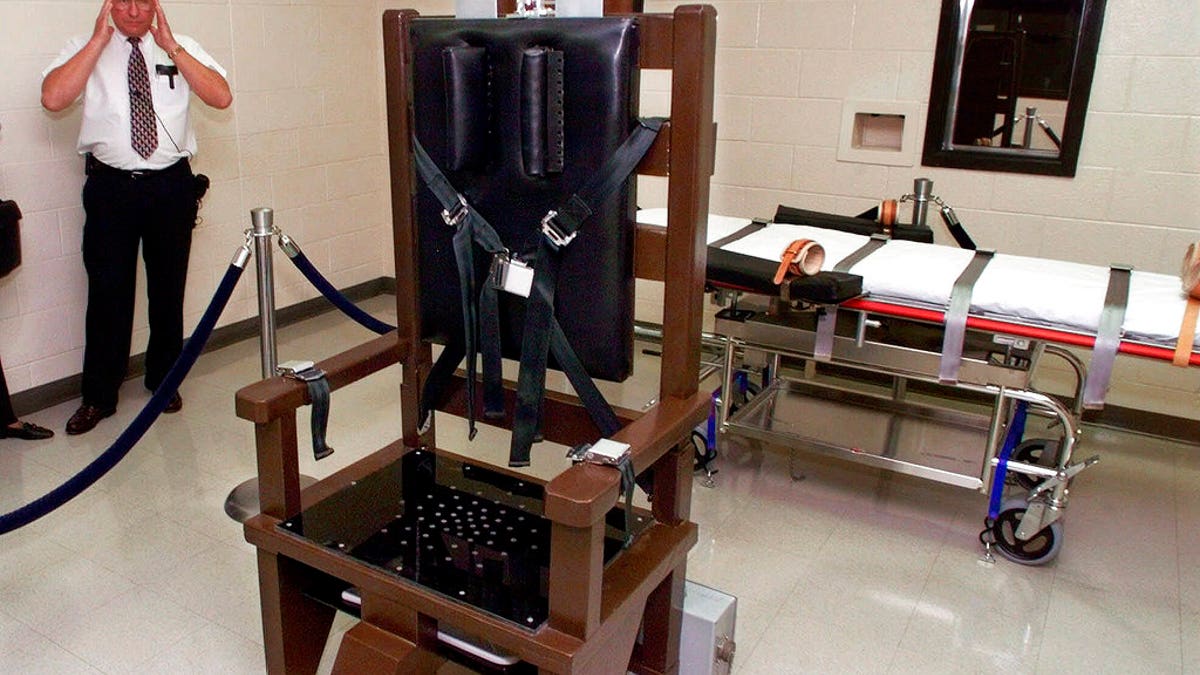
FILE: Ricky Bell, the warden at Riverbend Maximum Security Institution in Nashville, Tenn., gives a tour of the prison's execution chamber. (AP)
Four Tennessee death row inmates are opting for a firing squad rather than lethal injection or the electric chair, The Tennessean reported, citing their lawyers.
The lawsuit followed the Nov. 1 execution of 63-year-old Edmund Zagorski by electric chair. Zagorski was sentenced to death in 1984 for killing two men during an April 1983 drug deal. Tennessee had granted Zagorski’s decision to choose the electric chair after the U.S. Supreme Court denied his appeal.
The four inmates -- David Earl Miller, Todd Sutton, Terry Lynn King, and Stephen Michael West -- were each convicted and sentenced prior to 1999, Nashville's WKRN reported.
The inmates’ lawsuit argues that Tennessee’s electric chair "is sure or very likely to inflict a gruesome and torturous death."
“The firing squad significantly reduces a substantial risk of unnecessary and severe pain when compared,” with lethal injections, the suit says.
The suit says the state possesses the necessary resources for carrying out a firing squad. It suggests “Big Buck Shooting Range,” located at Riverbend Maximum Security Institution, because it can “easily accommodate what little equipment is required for an execution by firing squad.”
TENNESSEE MURDERER EDMUND ZAGORSKI IS EXECUTED AFTER RECEIVING UNUSUAL LAST MEAL
Should the court rule against death by firing squad, the lawsuit suggests orally administered drugs, as an alternative.
Three states – Mississippi, Oklahoma, and Utah – have authorized firing squads, but use lethal injection as a primary method, according to the Death Penalty Information Center.
Tennessee, like other death penalty states, is legally allowed to carry out executions through "any constitutional method" if a court determines lethal injection or the electric chair is unconstitutional, according to The Tennessean.








































